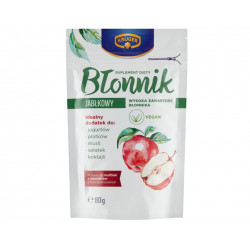Pectin is a structural polysaccharide contained in the primary cell walls of terrestrial plants. It was first isolated and described in 1825 by Henri Braconnot. It is produced commercially as a white to light brown powder, mainly extracted from citrus fruits. It is used as a thickener in the food industry pollution, particularly in the production of marmalade and jam. It is also used as a stabilizer and a source of fiber fillings, candies, fruit juices and milk.
Pectin is a natural part of human food, but has no particular nutritional value. The daily intake of pectin from fruit and vegetables is about 5 g at consumption of 500 g feed of plant origin.
Pectin passes through the small intestine almost no chemical change. This makes it one of the most effective dietary fiber.
Natural sources of pectin
Apples, guava, quince, plum, gooseberry, orange and other citrus fruits contain high amounts of pectin as a soft fruit such as cherry, grape, and strawberry contain small amounts of pectin.
Main raw materials for the production of pectin are dried citrus peel and marc both waste product in the production of juices. Sometimes used and waste from sugar beet left in sugar production.
In the world produce approximately 40.000 tons annually pectin.
Useful properties
It has been found that the consumption of pectin decreases blood cholesterol levels. This is due to the increased viscosity of the intestinal contents, which in turn leads to the binding of cholesterol and bile acids and reduce the absorption of cholesterol. The colon microorganisms metabolize pectin and release short-chain fatty acids, which are prebiotics and have an extremely beneficial effect on the person's medical condition.
Pectin can be used in the prophylaxis of atherosclerosis, cardiovascular and cerebrovascular disorders, formation of gallstones.
Pectin is an extremely valuable compound for the "transport" of anticancer agents directly to affected tissues, which to a significant extent prevents the formation of metastases. There is evidence that it significantly improves the prognosis of prostate cancer - a disease that ranks first in men. Beneficial effect of pectin is observed with the use of antibiotics - by prolongation of their action and mitigate side effects.




